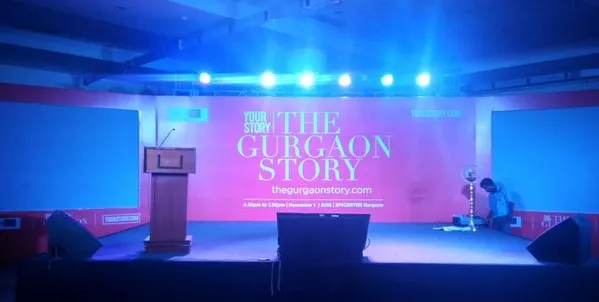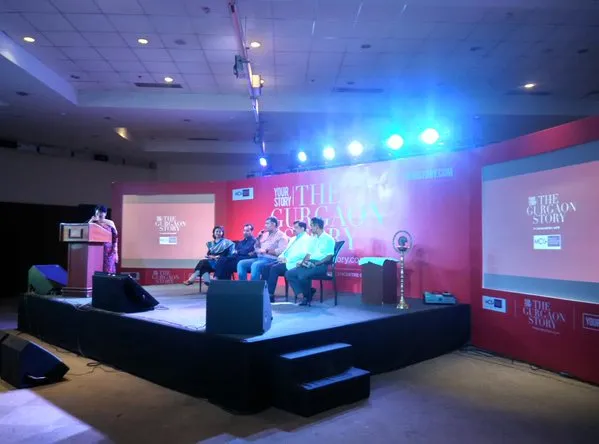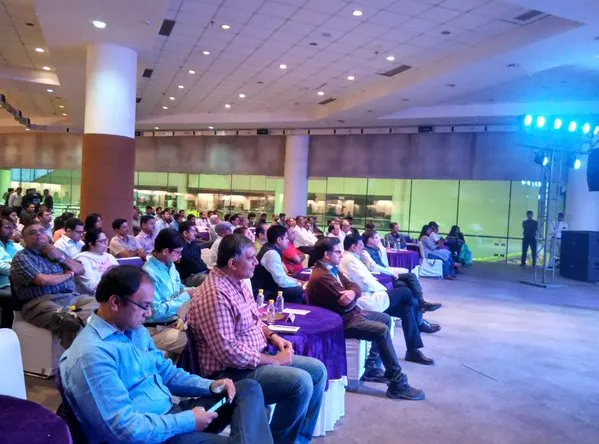The Gurgaon Story: A community-based plan to tackle Millennium City’s growing pains
Over the last two decades, Millennium City Gurgaon has emerged as an IT, outsourcing, manufacturing and now, a startup hub. Its growth can be traced back to the early ’90s when automobile giants like Maruti-Suzuki and Hero Honda set up manufacturing units. Export houses, IT companies and a variety of companies – blue chips, KPOs and BPOs – soon followed, opting for Gurgaon over Noida and Delhi, which was bursting at the seams. To celebrate the evolution of Gurgaon, the Municipal Corporation of Gurgaon (MCG), in association with YourStory, organized a summit called The Gurgaon Story on November 1, which is also Haryana Day.

Addressing the gathering of citizens, experts, and government officials, Commissioner of Gurgaon Vikas Gupta said that real and positive transformation of a city is only possible when there is a strong community of thinkers and doers working towards the same goal. He also announced that MCG was planning to introduce a world-class transportation system and build a cultural centre too.
The Gurgaon Story aims to create a sense of belonging among its residents and also provide an ecosystem where people from different walks of life, different professions, and those with Gurgaon’s best interests at heart can come together and share their thoughts. Such interaction will spark new ideas to nurture Gurgaon, using technology, innovation, design and entertainment (TIDE).

The summit kicked off with an interesting session by Milind Soman and triathlete Abhishek Mishra, who had organized the first-ever Millennium City Run earlier in the day. Milind Soman, actor, endurance athlete and Ironman, emphasized the importance of keeping our bodies and environment fit and healthy. “Every change begins with you, and if you love yourself then you also love your surroundings. I have been coming to Gurgaon for more than a decade and have witnessed rapid urbanisation. However, pollution and traffic have eventually created a mess for the city,” he added.
Talking about the evolution of Gurgaon, T Sathyaprakash, Deputy Commissioner of Gurgaon Municipal Corporation, added, “Gurgaon had very humble beginnings in the early ’90s and has outpaced various cities as far as attracting investment is concerned. I read somewhere that India has eight startup unicorns, out of which Gurgaon houses three.”
With rising population and unprecedented urbanization, life in Gurgaon is severely impacted by problems like extreme pollution and traffic gridlocks. To address these issues, the local administration is experimenting with initiatives such as car-free Tuesdays every week. “Such initiatives can reduce toxins from the air and ease the traffic congestion in Gurgaon,” said renowned singer Shibani Kashyap. Shibani’s family has been staying in Gurgaon for more than a decade.

Technology is playing a crucial role in addressing the pain-points around transportation and logistics. Emergence of shuttle services such as Shuttl and Ola are encouraging Gurgaon residents to choose them over using their personal vehicles. The Metro rail network is not enough and does not interconnect all of Gurgaon, catering to only 33,000 commuters. Last-mile connectivity continues to be a big headache. “I believe shuttle services like Shuttl, Zipgo, Ola and carpooling can reduce usage of personal vehicles,” said P S Ananda Rao, Executive Director Association of State Road Transport Undertakings (ASRTU), in a panel discussion that explored the different aspects of urbanization at The Gurgaon Story summit.
Speakers at the summit, attended by 200 people, included Anuradha Goyal, author of The Mouse Charmers, architect Harsha Sridhar, and Deepak Pandit, Co-founder iSeed, among others.







